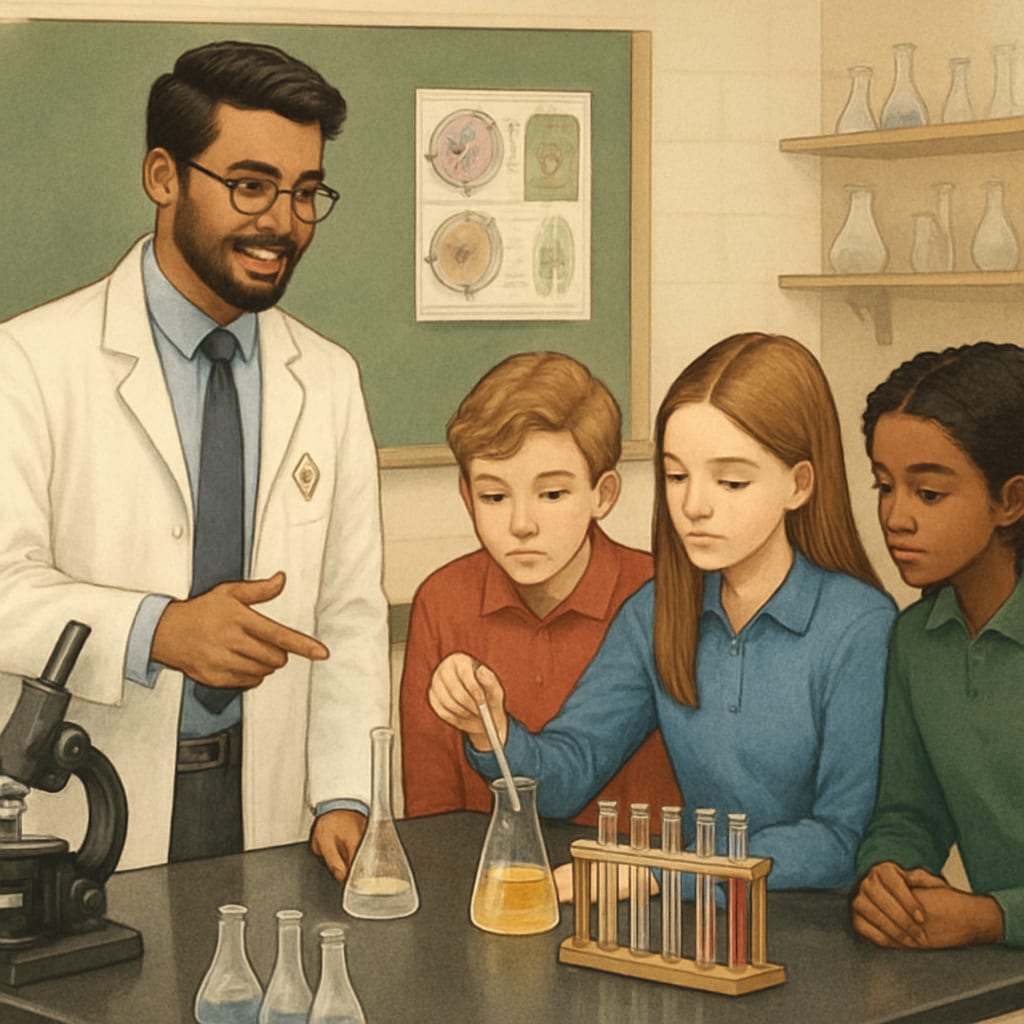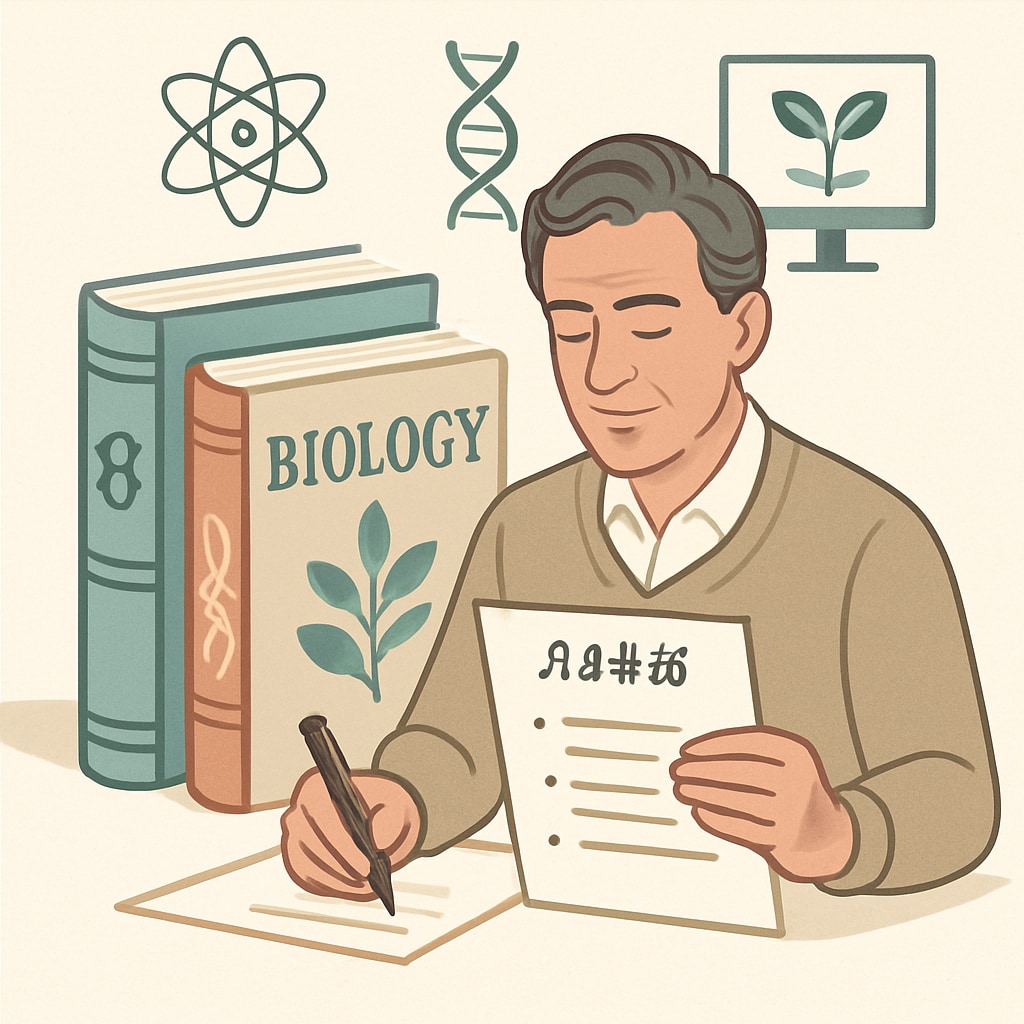The transition from a biology major to a master’s in education marks a fascinating cross-disciplinary journey. For students interested in pursuing this path, the combination of scientific expertise and educational passion can lead to fulfilling career opportunities. However, this professional shift comes with unique challenges, as well as rewarding prospects. This article explores the feasibility of this transition, focusing on the skills transfer, challenges to overcome, and practical advice for biology majors aiming to embrace the education field.
Why Transitioning from Biology to Education Makes Sense
Biology graduates possess a wealth of scientific knowledge that can be applied to educational settings. For example, their understanding of complex biological concepts can enrich science curriculums, making subjects like microbiology, genetics, and ecology more engaging for students. Additionally, biology majors often develop analytical thinking, research skills, and problem-solving abilities, all of which are highly valuable in education.
Furthermore, education offers biology graduates an opportunity to make a meaningful impact. Teaching allows them to inspire future generations, foster curiosity, and communicate the importance of science in everyday life. This transition can also lead to personal growth, as educators often develop stronger interpersonal and leadership skills.

Challenges in Transitioning to a Master’s in Education
While the move from biology to education is promising, it is not without challenges. One significant hurdle is the adjustment to a different academic framework. Unlike biology, education studies emphasize pedagogy (the art of teaching), classroom management, and communication techniques. These areas may require biology graduates to adopt new learning strategies and shift their focus from purely scientific analysis to human-focused interaction.
Another challenge is the need for certification or licensure in many regions. Depending on the country or state, aspiring educators might need additional qualifications or practical teaching experience to meet requirements. This can extend the timeline for entering the profession.
Lastly, biology graduates entering education may initially struggle to align their scientific expertise with educational principles. For example, simplifying complex topics for younger audiences requires a different approach than academic or professional scientific communication.

Practical Steps for Biology Majors Pursuing Education
If you are a biology major considering a master’s in education, here are some actionable steps to help you navigate the transition:
- Research Education Programs: Look for master’s programs that offer specializations in science education or integrate STEM (science, technology, engineering, and math) teaching methods.
- Gain Classroom Experience: Volunteer as a teaching assistant, tutor, or intern to familiarize yourself with educational environments.
- Understand Certification Requirements: Explore the certifications or licensure needed in your region to teach professionally.
- Leverage Transferable Skills: Use your analytical and research skills to develop innovative teaching strategies and lesson plans.
- Seek Mentorship: Connect with educators or academic advisors who can offer guidance on transitioning into the field.
In addition, reading educational research papers or attending workshops can help biology graduates understand classroom dynamics better. Building a network within the education community can also ease the transition, providing support and valuable insights.
The Growing Demand for Science Educators
The demand for science educators is increasing globally, making this career path even more appealing. According to Britannica, STEM education is a major focus in many countries due to its role in economic growth and innovation. Similarly, Wikipedia highlights the importance of interdisciplinary teaching in preparing students for real-world challenges.
Biology graduates have the potential to fill critical gaps in science education, particularly in secondary schools where qualified science teachers are often in short supply. By combining their scientific expertise with pedagogical skills, they can contribute to shaping a more scientifically literate society.
Conclusion: Embracing the Journey
The shift from biology major to education master’s is a transformative journey that combines intellectual rigor with emotional fulfillment. While challenges such as adapting to educational frameworks and obtaining certifications may arise, the rewards of inspiring students and contributing to scientific literacy outweigh these obstacles. With careful planning, determination, and passion, biology graduates can successfully transition into education, creating a vibrant blend of science and teaching.
For those ready to embrace this interdisciplinary path, the opportunities are endless, from influencing young minds to advancing STEM education on a broader scale. The journey may be demanding, but the impact you can make as a science educator is immeasurable.


